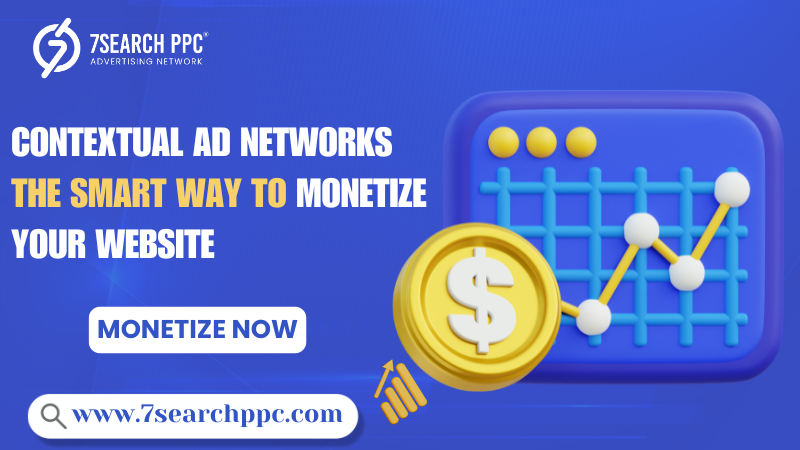
Are Contextual Ad Networks Still Worth It Now?
Contextual Ad Networks have been a reliable form of online advertising for over a decade, offering a way to place ads based on the content of a web page rather than relying solely on user behavior. These networks operate by analyzing the text, theme, and context of web content, then displaying relevant ads to users actively engaging with similar topics. As privacy concerns grow and cookie-based tracking faces new regulations, many advertisers are re-evaluating the worth of Contextual Ad Networks in a modern, privacy-conscious advertising world.
While behavioral advertising has long dominated due to its targeting precision, contextual advertising is seeing a resurgence. This shift is especially relevant with the phasing out of third-party cookies by major browsers. Marketers are now looking for alternatives that maintain relevance while respecting user privacy. Contextual Ad Networks, such as 7Search PPC, are stepping up by offering targeting solutions that don’t require intrusive tracking.

Why Contextual Ad Networks Are Gaining Traction Again
One of the main reasons advertisers are revisiting contextual targeting is the growing demand for ethical, privacy-first advertising. Consumers are becoming more aware of how their data is collected and used. In response, brands are adopting more transparent advertising practices that build trust. Contextual Ad Networks fit into this strategy by avoiding user-level profiling and instead delivering ads aligned with the content being viewed.
With platforms like 7Search PPC, advertisers can reach a targeted audience without invading their privacy. Instead of relying on cookies or tracking pixels, 7Search PPC analyzes the context of web pages and places ads that match the content theme. For instance, if a user is reading a blog about travel tips, they may be served an ad related to airline deals or travel insurance, making the content-to-ad relationship feel natural and helpful.
Another advantage is the ability to reach users with high intent. When someone is reading about a particular topic, they are more likely to engage with ads that are relevant to that subject. This leads to improved click-through rates (CTR) and better return on ad spend (ROAS) for advertisers.
Evaluating the Effectiveness of Contextual Advertising in Current Campaigns
The performance of Contextual Ad Networks largely depends on the quality of the content matching algorithms and the scale of the ad network. 7Search PPC, for example, provides access to a wide range of publishing partners, ensuring ads are delivered across relevant and high-quality content. By tapping into such networks, advertisers can achieve broader visibility while maintaining relevance.
Contextual ads also tend to blend more naturally with the page content, resulting in a non-disruptive user experience. This leads to higher engagement and less ad fatigue. Users often don’t feel “followed around” by ads, which is a common issue with behavioral targeting. The contextual approach respects user boundaries and focuses on delivering useful ads at the right moment.
Campaigns using contextual targeting also benefit from lower competition in some niches, which can lead to more cost-effective bidding. This is especially true for newer or niche advertisers who might struggle to compete on high-CPC keywords through search engine advertising. Platforms like 7Search PPC allow them to test campaigns affordably while still achieving relevant impressions.
The Strategic Role of 7Search PPC in Contextual Ad Campaigns
7Search PPC offers robust tools and analytics tailored for contextual advertising. Advertisers can select categories and keywords that define the content themes they want their ads to appear alongside. The platform then automates ad placements across its network, matching content accurately without the need for personal data tracking.
Another benefit of 7Search PPC is the ability to manage campaigns in real-time. Marketers can monitor which categories or content types yield the best performance, then optimize accordingly. This adaptability allows for ongoing improvements in campaign effectiveness and budget allocation.
For small businesses or advertisers with limited marketing budgets, 7Search PPC provides a practical entry point into contextual advertising. The platform’s self-serve interface and simplified setup make it accessible even to those without advanced digital marketing experience. With detailed reporting and budget controls, advertisers can track performance and scale their efforts based on results.
Challenges and Considerations for Advertisers Using Contextual Ad Networks
Despite its growing relevance, contextual advertising does come with limitations. Unlike behavioral targeting, it doesn’t offer granular targeting based on individual user data. This means it may not be as effective for campaigns that rely heavily on user behavior insights, such as retargeting. Additionally, the success of contextual ads depends heavily on the accuracy of the content classification. Poor matching can result in ads appearing on irrelevant or low-performing content.
However, these challenges are mitigated by choosing the right ad network. 7Search PPC continuously improves its contextual algorithms to ensure accurate matching and positive ad placements. By focusing on quality control and network transparency, it minimizes the risk of wasted impressions or irrelevant placements.
Another consideration is creative alignment. Since contextual ads rely on thematic relevance, the ad creative should closely match the topic of the content. This ensures the ad feels like a natural part of the user experience. Creating variations of ad creatives for different content categories is a good practice to maximize engagement.
Customer support service by UserEcho

